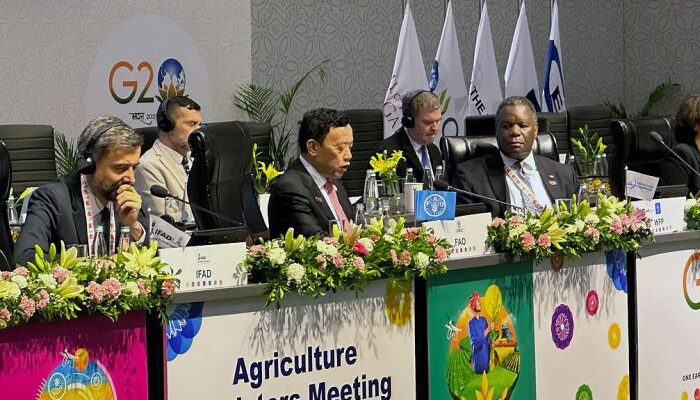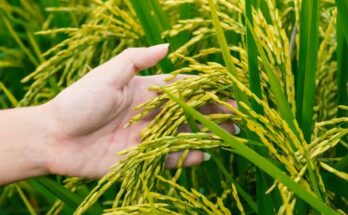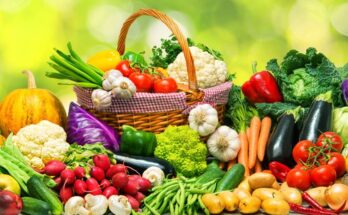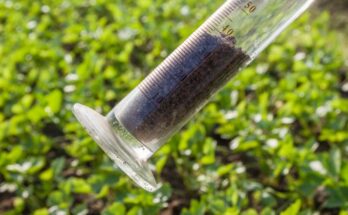Agrifood systems must be part of the solution to the loss of biodiversity and the climate crisis facing our planet, Director-General of the Food and Agriculture Organization of the United Nations (FAO), QU Dongyu, said on Friday at G20 Agriculture Ministers Meeting, going on in Hyderabad, India.
“Despite progress, today we are facing alarming rates of biodiversity loss, jeopardising food security and nutrition, poverty eradication, prevention of natural disasters and climate change mitigation and adaptation,” Qu said in his address to a High-Level Ministerial Meeting on Sustaining Biodiversity and Ecosystem Services for Food Security, which took place in the Indian city of Hyderabad.
With as many as 828 million people worldwide facing hunger in 2021 and 3.1 billion unable to afford a healthy diet in 2020, “the urgency is clear,” he said.
The FAO Director-General emphasised we need genetic diversity to adapt agrifood systems to climate change, emerging pests, pathogens and changing ecological conditions; we need species diversity for diverse foods; and we need healthy ecosystems to provide water, regulate the climate and provide resilience against disasters.
You may also like to read: PM highlights India’s policy of ‘march to future’ with ‘back to basics’ at G20 Agriculture Ministers’ Meet
And yet, many drivers of biodiversity loss can be found in inappropriate agricultural practices. “My message is clear: agrifood systems must be part of the solution to the biodiversity and climate crises,” Qu said.
This means promoting improved practices that can help address trade-offs, maintain ecosystems, improve land and soil quality, reduce input use, and strengthen the resilience and adaptation capacity of farming systems to extreme weather events linked to climate change, Qu said.
Working on solutions
The interlinkages between food security and biodiversity are recognised in the recently adopted Kunming-Montreal Global Biodiversity Framework, which sets out an ambitious pathway for a world living in harmony with nature. More than half of its 23 targets for 2030 are directly related to agrifood systems, which encompass the full food and non-food range of agricultural products, from production to consumption.
Agriculture Ministers attending the G20 were therefore encouraged by Qu to be actively engaged in ensuring that their biodiversity commitments “are holistically implemented, considering environmental degradation, social impacts and economic opportunities for the agricultural sectors.”
You may also like to read: Enabling climate-resilient agriculture with agritech
FAO is working with its members and partners to scale up biodiversity-friendly practices in crop and livestock production, forestry, fisheries and aquaculture through its Strategy on Mainstreaming Biodiversity across Agricultural Sectors.
FAO’s support includes practical guides, tools and other normative or policy instruments for the implementation of the Ecosystem Approach to Fisheries and Aquaculture, sustainable forest management, diversification approaches, integrated pest management and agroecology.
FAO, along with the UN Environment Programme (UNEP), also co-leads the UN Decade on Ecosy¬¬¬stem Restoration – partnering to prevent, halt, and reverse the degradation of ecosystems on every continent and in every ocean.
Plenary address
While attending the G20, the FAO Director-General also addressed its Plenary Session on Sustainable Agriculture for Food Security and Nutrition.
Here, Qu reminded the audience about the multiple challenges facing FAO’s efforts to feed a growing global population sustainably. These include conflicts and economic hardship; weather extremes, such as heavy rains, tropical storms, cyclones, flooding and drought; as well as rising food, fuel and fertiliser prices.
You may also like to read: Technology adoption is key to sustainable regenerative farming
“To transform our agrifood systems to become more efficient, inclusive, resilient and sustainable, we need to accelerate and intensify actions and boost investments in agriculture,” Qu said.
FAO has developed two important strategies in this regard: the Strategy on Climate Change and the Science and Innovation Strategy. “Their implementation should get us closer to the Zero Hunger goal,” Qu said.
FAO is also hosting the Food Systems Summit Hub and developing a roadmap to lower greenhouse gas emissions from agricultural activities to achieve the 1.5 degrees Celsius target set by the Paris Agreement while enabling the sector to step up to the challenge of eradicating hunger.
“Achieving Zero Hunger under 1.5 degrees will require significant investments, and FAO is working through its Hand-in-Hand Initiative to accelerate investments for the transformation of agrifood systems,” Qu said.
Photo: FAO Director-General QU Dongyu attending the G20 Agriculture Ministers Meeting in Hyderabad, India on June 06, 2023
Photo credit: ©FAO





